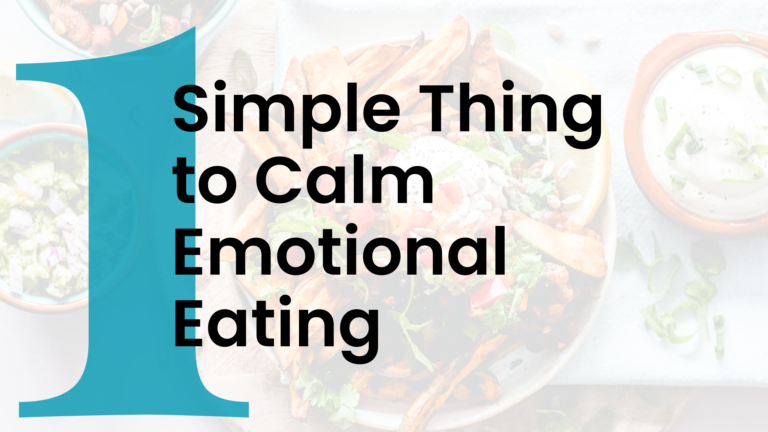There seems to be a consensus in our society that weight gain is inherently ‘bad’. The shame around weight gain is a feeling many people have felt throughout their lifetime, probably many times. This general feeling within society leads to many people restricting food. Food restriction can occur due to a plethora of reasons but for many, it comes down to wanting to achieve weight loss. We go on diet after diet, in search of answers of how to achieve rigid goals we put on our bodies. We feel shame when it doesn’t work as quickly or long-term as we would like, and so the diet cycling continues.
What many people may not know is that restricting food, during times like dieting, can create theopposite effect they are looking to achieve. Food restriction can completely alter your body’s metabolic processes and cause mental anguish. This can result in the very thing most people fear: weight gain.
So, let’s look at 6 reasons why this could happen:
1.Metabolism decreases to compensate.
Our bodies are a lot more complex than we may think. They contain hundreds of different mechanisms that work around the clock to maintain balance. When food is being restricted, this can cause a drop in our metabolic rate because the loss of fat, without adequate muscle mass, will decrease our body temperature. When a decrease in the production of body heat occurs and thus the decrease in metabolic rate, this causes our resting energy expenditure to decrease, causing our body to hold onto more fat or energy. Eventually, this triggers the body to return to its initial weight.
2. Leptin decreases, making it harder to feel fullness.
Various hormones become altered in a state of restriction. These include leptin, peptideYY, cholecystokinin, insulin, ghrelin and others. These hormones are directly involved in regulating appetite to maintain homeostasis in our bodies. Leptin is a hormone that controls how full you feel and when it drops during restriction, it makes it harder to feel full. This ultimately can cause weight gain from not feeling satiety as easily as before restriction.
3. Ghrelin increases, you are now hungrier
In contrast, ghrelin is our hunger hormone, and its job is to signal to us that we are indeed hungry. During restriction, ghrelin will increase to compensate. When dieting, hormones like ghrelin have been found to be altered from their baseline values. Studies have shown that this causes an actual increase in appetite plus weight regain. In short, our body is literally telling us it needs food by stimulating our appetite.
4. Food restriction leads to hyper-fixation
When we are ‘not allowed’ to have something, this will cause us to want it even more. Restriction is a double-edged sword. It causes multiple physiological effects in favor of weight gain and on the other end it causes us to obsess over food. We become hyper focused on food when we never really needed to be. This can easily lead to episodes of binging. We let it build up thinking that the restriction is beneficial. Eventually, the obsession and hyper-fixation leads to us bingeing until we feel uncomfortable. This is avoidable and one of the reasons dieting is unsustainable.
5. Genetics. Yes, they also play a role in this!
Have you ever heard of set-point theory? Well, it has become less of a theory in recent years due to the substantial evidence that shows its significance. Set-point theory, in short, aims to explain how we all have a set genetic blueprint for our body weight and shape. This is significant when thinking about dieting and restriction because this means that no matter how hard we try, our bodies will ultimately fight to maintain that homeostatic set-point. This is what researchers say is why those hunger/fullness hormones become distorted and metabolism decreases. Those mechanisms essentially occur to push us back to our set-point.
So, what is the alternative?
The alternative is not a quick fix and will require patience, dedication and self-compassion. A scientifically proven wayto have a healthy relationship with food and your body is to learn how to intuitively eat. Intuitive eating includes honoring your hunger and feeling your fullness. Having interoceptive awareness, being able to perceive physical sensations, is a strong component of intuitive eating that brings you into your body. Respecting these signals as well as learning to eat for physical reasons rather than emotional reasons is how intuitive eating can keep your body in a balanced state.
Most importantly, no food is off limits. When we restrict food from ourselves we will remain in a state of stress. All foods fit into an intuitive eating lifestyle.
If you are interested in learning more about beginning your intuitive eating journey, feel free to reach out: www.tracybrownrd.com/get-started.An intuitive eating dietitian can help guide you through this process. Finding food freedom, healing your relationship with your body and tapping into your innate body wisdom is a sustainable, life-long relationship you CAN have.
Here’s to peaceful eating,
Tracy and team
References
1. Benton D, Young HA. Reducing Calorie Intake May Not Help You Lose Body Weight. Perspect Psychol Sci. 2017;12(5):703-714. doi:10.1177/1745691617690878
2. Rose KL, Evans EW, Sonneville KR, Richmond T. The set point: weight destiny established before adulthood?. Curr Opin Pediatr. 2021;33(4):368-372. doi:10.1097/MOP.0000000000001024
3. Fuentes Artiles R, Staub K, Aldakak L, Eppenberger P, RühliF, Bender N. Mindful eating and common diet programs lower body weight similarly: Systematic review and meta-analysis. Obes Rev. 2019;20(11):1619-1627. doi:10.1111/obr.129118




